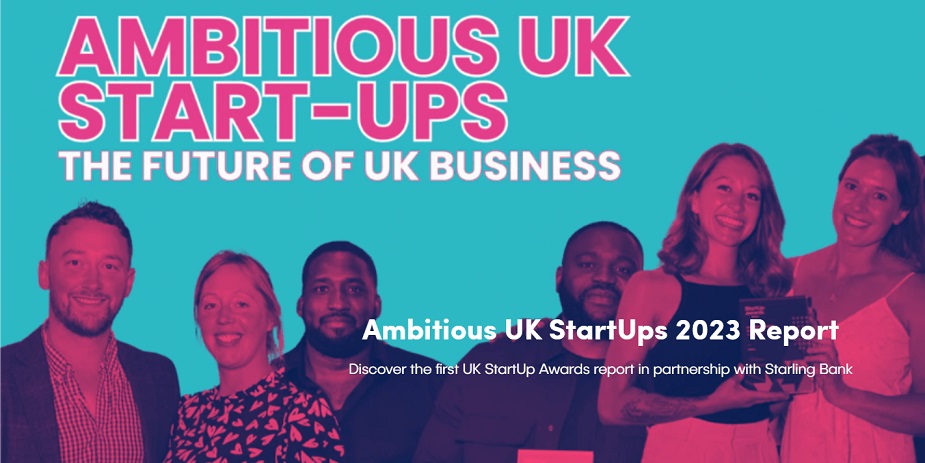
Financing a new business can be one of the biggest hurdles entrepreneurs face. Some 85% of start-ups launched in the last three years have relied on the founder’s personal capital as the initial source of funding. This is followed by contributions from family and friends (20%), and 13% taking out a bank loan, according to a press release.
While such bootstrapping could indicate an initial preference to maintain control of the business for as long as possible, nearly two-thirds (62%) of founders also state that access to finance is their biggest challenge over the next twelve months, suggesting that ambitious start-ups need further funding to grow their business.
The findings are part of a new report released today – Ambitious UK Start-Ups: The Future of UK Business, which draws on data gathered from more than 1,200 businesses that entered the 2023 National StartUp Awards – a programme that celebrates the best new firms under three years old, delivered in partnership with Starling Bank.
The study reveals that while 59% of new businesses have one founder, 41% have two or more entrepreneurs involved in starting and managing the business.
By gender, 49% of new businesses with more than one founder consist of all-male teams, and 36% have mixed-gender teams. Just 15% of team-based ventures are all-female.
Four out of ten start-up founders (41%) have had previous experience of starting their own business. Of those, 47% have launched two or more enterprises before getting involved in their current business, bringing valuable knowledge, transferable skills, and resilience gained from previous ventures.
39% of founders had parents who were entrepreneurs, exposing these individuals to business concepts, challenges, and opportunities from an early age. 42% of female entrepreneurs who are the lead founders of their business had entrepreneurial parents compared to 36% of their male equivalents. Regionally, those founders based in the more prosperous areas* of the UK (42%) were more likely to have a father or a mother who were entrepreneurs than those in the rest of the UK (36%).
Although traditional banks have served businesses for decades, start-ups are accessing finance in a very different way. Two-thirds of all start-ups (67%) have accounts with challenger banks or new fintech firms. Starling Bank is the most favoured banking partner for UK start-up founders in this study (31%), followed by NatWest (10%) and Barclays (9%) in the top three.
According to the report, over half of new businesses will need support over the next 12 months. The biggest issues facing start-ups include access to finance (62%), marketing and sales support (57%), access to talent (56%), and having access to new markets (52%) for international expansion.
Professor Dylan Jones-Evans OBE, founder of the UK StartUp Awards, said: “Self-funding their businesses allows entrepreneurs to maintain full control and ownership of their company and avoid debt. By relying on sales rather than external funding for income, bootstrapped businesses will be more customer-focused and have greater freedom to develop without outside interference. However, an over-dependence on the founder’s personal funds, or contributions from family or friends, can also limit growth due to a lack of long term financial resources, and it is not surprising to find that access to finance is rated as the biggest challenge when it comes to support for new ventures over the next 12 months – especially as financial institutions consider start-ups as high risk ventures with a lack of any proven track record or market presence.
“The quality of the new businesses showcased in this report highlight the real opportunities for investors to support such entrepreneurial firms in the future. For example, the study identified founders with a history of entrepreneurs in the family, those who launch their start-ups with other co-founders and with previous expertise of setting up their own firms. By being exposed to business concepts from an early age, having co-founders who complement each other, and knowledge gained from previous ventures, entrepreneurs are maximising the opportunities for success at a time when there are real economic challenges facing all businesses.„
Ambitious UK Start-Ups: The Future of UK Business report is available to download at https://startupawards.uk/ambitious-uk-startups-2023/
Banking 4.0 – „how was the experience for you”
„To be honest I think that Sinaia, your conference, is much better then Davos.”
Many more interesting quotes in the video below: